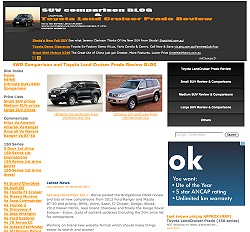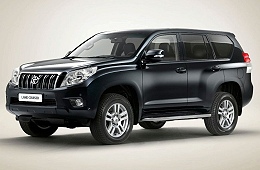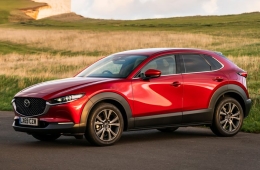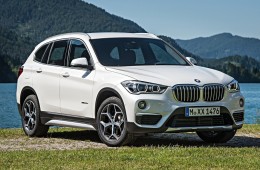|
|
VS |
|
This is the BMW X1 Vs Mazda CX-30 comparison for 2018. It’s been at least 20 years since a Japanese brand could be easily compared to a BMW. BMW has made a few mistakes over the years in terms of downgrading the brand. Only one of us would pay the premium for a BMW badged vehicle for example. The X1 is the cheapest BMW model in the SUV range and the entry level is the same price as the top range CX-30. While the X1 is clearly a wagon style SUV and more comparable to the CX-5, the CX-30 is a new release but barely an SUV in the traditional sense.
BMW X1 Vs Mazda CX-30 exterior comparison: Different styling themes for the two models. BMW still uses the deliberately ‘uglified’ styling which used to work as a point of polarisation and to stand out from the crowd. It worked and you used to be able to pick out a BMW in the car park for many years. For course in 2020 this is no longer true and to be honest, without the BMW badges and front grill design it could be mistaken for any number of brands. The CX-30 looks great although we think the arguably Alfa Romeo inspired design is not entirely original.
BMW X1 Vs Mazda CX-30 interior comparison: The biggest let down in the X1 s the interior design. The materials are fine with a combination of hard and soft plastics. It’s odd how fake carbon fibre is often applauded and fake wood is not, yet cheap looking real wood aka Hyundai is. We don’t care as long as it look good. For the price the BMW is a cheap looking place and occasionally cheap feel like the air vent controls. The CX-30 specifically yet top range trim is a nicer place to be in than the BMW X1 end of story. Thats said if you want to option he X1 interior that’s your choice but seriously…
BMW X1 Vs Mazda CX-30 engine and technology comparison: In terms of safety the X1 needs you to tick the optional safety pack otherwise it’s safety rating is no better than a entry level CX-30. The only place where the X1 has the advantage over the CX-30 is the engine options. While the standard engines are very ordinary the top range 2 litre turbo has the X1 really hustle. That said we all know how relatively short lived these engines are – just do a search on youtube for examples. Furthermore they are both front wheel drive. The CX-30 is not slow but it’s not particularly fast either which is disappointing but expected in this price range.
BMW X1 Vs Mazda CX-30 Street cred : The entry level X1 looks substantial and to most people the badge is enough for suburban kudos. Unfortunately most buyers can’t afford the X1 with a metallic paint job so like any white Ranger Rover as another example, truly reflects what so of buyer and spec the car is. It’s street cred will plummet as you can assume that there will probably be no option packs and purchased as the cheapest ‘real’ BMW SUV you can buy.
The conclusion and winner of the BMW X1 Vs Mazda CX-30 comparison is the CX-30. The CX-30 is value for money, feeling more expensive than it’s price suggests compared to the X1. The only comparison most buyers would do is to compare the top range CX-30 Vs an entry level white BMW X1 – and you’ll see plenty of them. For that you get a 3 cylinder turbo with so-so handling and sub-par stereo system to remind you that this is the cheapest BMW you can buy. We’d rather a fully equipped SUV that actually feels good to be in rather than a spartan base model when shopping in this class. In the end it’s a badge thing, do you still value a BMW over a Mazda?
| Mazda CX-30 | BMW X1 |
 |
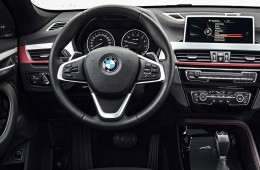 |
| Engines | |
| IL4 Cylinder Petrol DOHC VVT EFI 2.0 Litre (1998cc) Claimed 114Kw @ 6000RPM Claimed 200Nm @ 4000RPM |
IL3 Cylinder turbo Petrol (95 Octane) DOHC EFI VVT 1.5 Litre (1499cc) Claimed 103Kw @ 6500RPM Claimed 220Nm @ 1480RPM |
| 4 Cylinder petrol (91 Octane) 2.5 Litre (2488cc) DOHC VVT EFI Claimed 139Kw @ 6000RPM Claimed 252Nm @ 4000RPM |
IL4 Cylinder turbo Petrol (95 Octane) 2.0 Litre (1998cc) DOHC Engine EFI Claimed 141Kw @ 6000RPM Claimed 280Nm @ 13500RPM |
| IL4 Cylinder turbo Petrol (95 Octane) 2.0 Litre (1998cc) DOHC Engine EFI Claimed 170Kw @ 6000RPM Claimed 350Nm @ 1250RPM |
|
| IL 4 Cylinder Turbo Diesel DI CR EFI 2.0 Litre (1995cc) Claimed 110Kw @ 4000RPM Claimed 330Nm @ 1750RPM |
|
| Weight | |
| Up to 51 litres IL4 2.0 Petrol 6.5 litres per 100km IL4 2.5 Petrol 6.6 litres per 100km |
FROM 1399 Kg Towing capacity up to 1800kg |
| Fuel capacity & consumption | |
| 6 speed Auto Overall height/width 1540/1795 Overall length/wheelbase 4395/2655 4WD system: FWD or AWD on Demand ANCAP Safety: 5/5 |
Up to 61 litres IL3 1.5 Petrol turbo 5.4 Lts per 100km AVG IL4 2.0 Petrol1 turbo 6.1 Lts per 100km AVG IL4 2.0 Petrol2 turbo 7.5 Lts per 100km AVG IL4 2.0 Diesel turbo 4.7 Lts per 100km AVG |
| Other specifications | |
| 8 Speed Auto Overall height/width 1658/1910 Overall length/wheelbase 4425/2705 4WD system: FWD or AWD ANCAP Safety: 5/5 |
7 speed Auto Overall height/width 1598/1821 Overall length/wheelbase 4439/2670 4WD system: FWD or AWD ANCAP Safety: 5/5 |
| Capability | |
| Angle of: (degrees) Approach xx Departure xx Breakover xx Ground clearance (unloaded) 175mm Water Fording depth xxmm Max |
Angle of: (degrees) Approach 17.7 Departure 20.6 Breakover 16.7 Ground clearance (unloaded) 183 mm Water Fording depth xxmm Max |
| Performance | |
| 1.5 Petrol Turbo – 0-100kph 9.6 secs 2.0 Petrol Turbo – 0-100kph 7.6 secs 2.0 Petrol Turbo – 0-100kph 6.5 secs 2.0 Turbo Diesel – 0-100kph 9.6 secs |
|
| Pricing | |
| 2020 $29,990 – 43,490 AUD *Always check with the dealer for up to date pricing, specifications, on-road costs, accessories and specials etc.. everything as usual is subject to change! |
2020 $44,500 – $62,990 AUD 2018 $45,900 – $61,500 AUD *Always check with the dealer for up to date pricing, specifications, on-road costs, accessories and specials etc.. everything as usual is subject to change! |

